Netukulimk: Our way forward
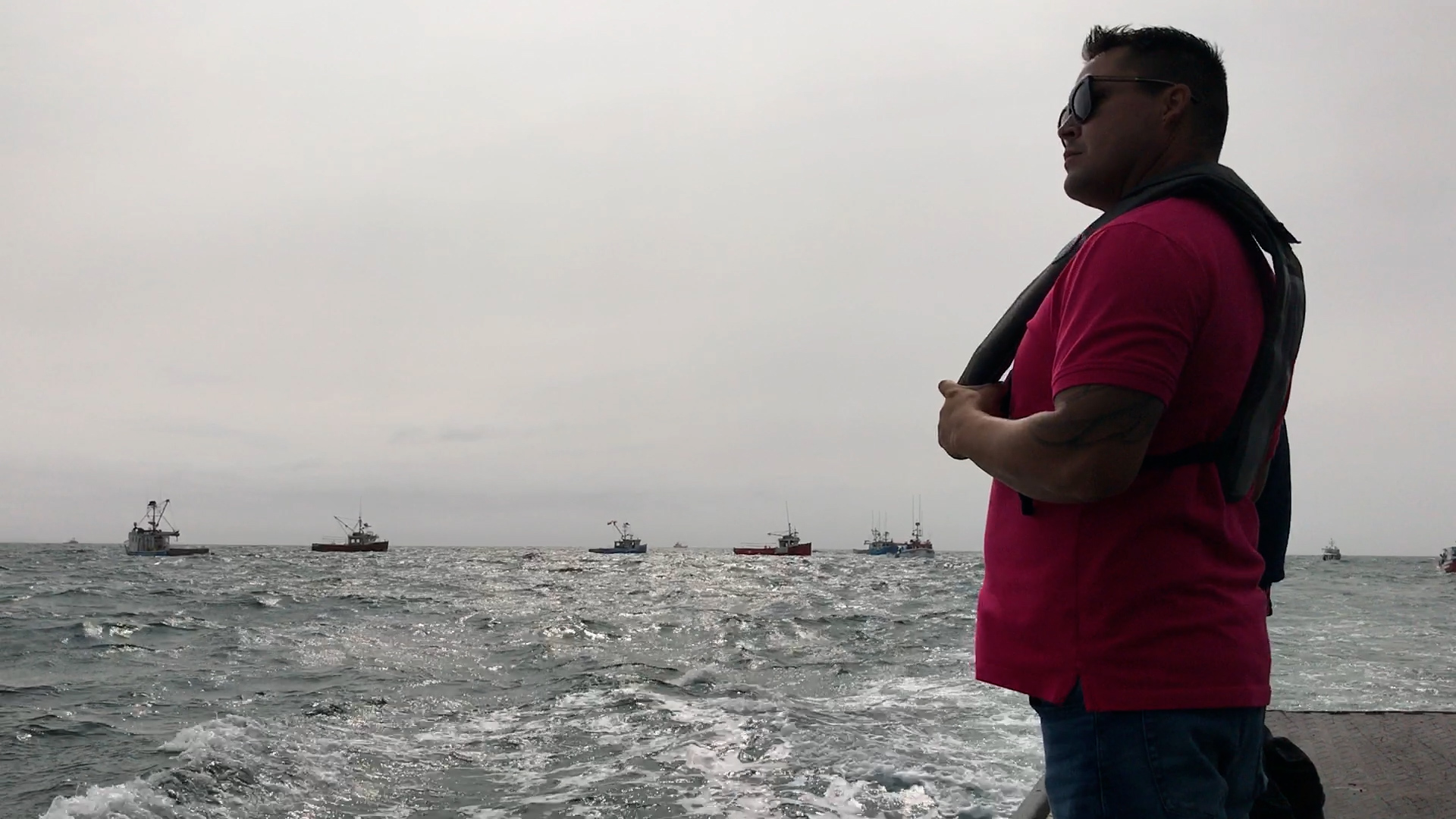
caption
Brandon Maloney keeps an eye on commercial fishing boats as Mi'kmaw fishers exercise their treaty right to fish for a moderate livelihood.For Mi’kmaq, one guiding principle leads the way to a rights-based fishery
Backlash against the Mi’kmaw fisheries in Nova Scotia made headlines in the fall of 2020. But the fight for treaty rights goes back decades, even across generations. An ancient Mi’kmaw concept based on traditional knowledge guides the way forward.
Netukulimk. It’s an approach to hunting and harvesting that considers conservation and sustainability.
We spoke with L’nu’k in Mi’kma’ki about Netukulimk and what a moderate livelihood means to them. We heard what it’s like to face racism. We heard about the hard work going on to ensure the fisheries meet Mi’kmaw needs and respect conservation. We were also reminded that the Mi’kmaw right to earn a living doesn’t stop at fishing for lobster.
Scroll through the stories below or jump ahead to a specific profile.
- Allison Bernard
- Ashton Bernard and Zack Nicholas
- Michael Basque
- Gail Tupper and Sarah Veinot
- Clifford Paul
- Brandon Maloney
- Alex McDonald
Allison Bernard
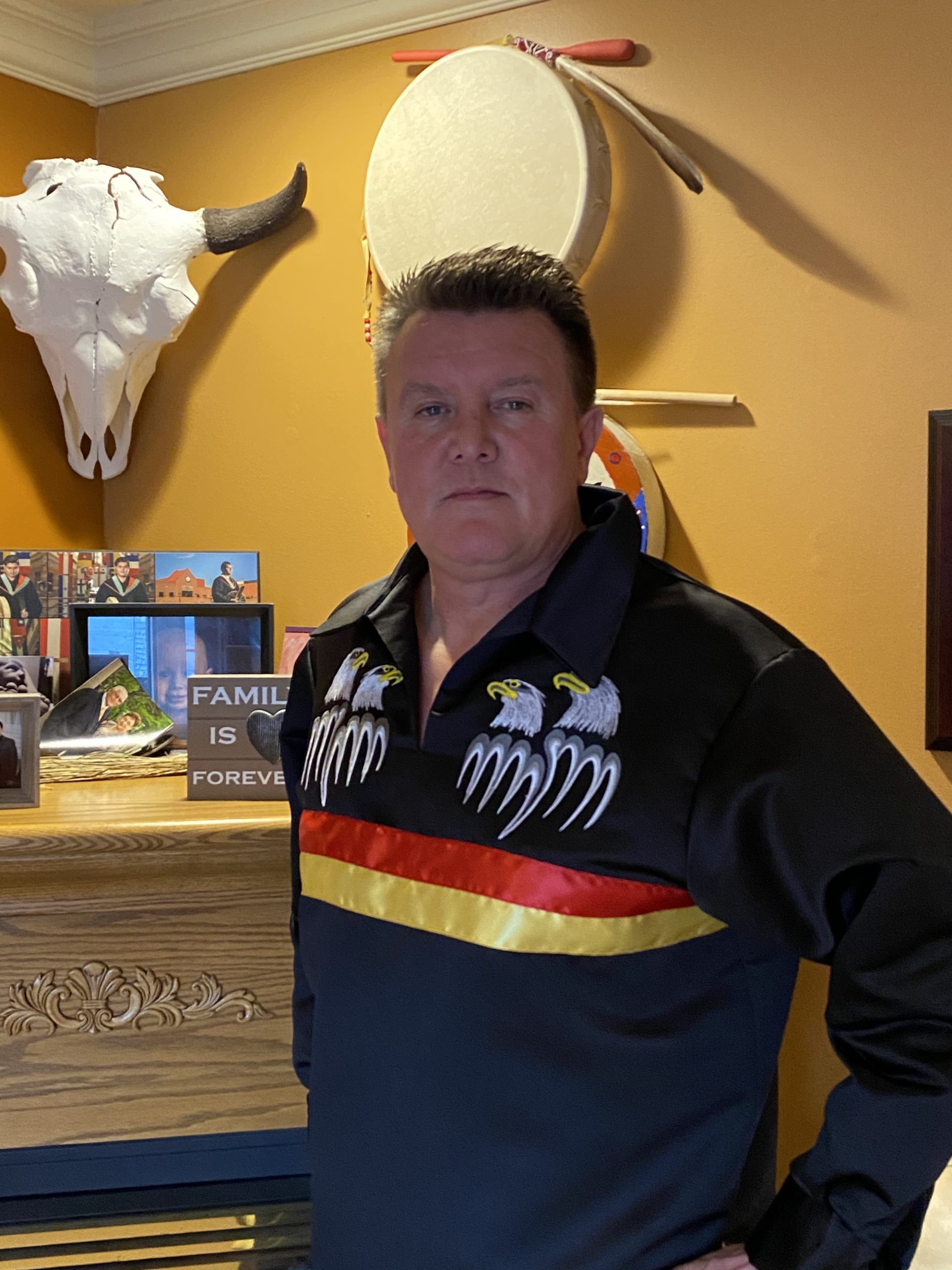
caption
Allison Bernard is the wildlife lead at the Mi’kmaq Rights Initiative of Nova Scotia.Allison Bernard comes from a family of fighters.
His grandfather was a soldier in the Second World War. His father was the chief of Eskasoni for 22 years, and he said that his mother and father survived the residential school system.
Bernard is the wildlife lead at the Mi’kmaq Rights Initiative of Nova Scotia, also called Kwilmu’kw Maw-klusuaqn. He said he won two criminal cases defending his rights over the decades, once to hunt moose and the second time to hunt deer at night with a light.
To Bernard, fighting for Mi’kmaw rights is very important.
“This is who I am,” he said.
Most recently his sons, Ashton and Arden Bernard, were charged after fishing for a moderate livelihood in September of 2019. Thirty-two crates of lobster they caught were also seized by Fisheries and Oceans Canada (DFO).
The brothers are expected to go to court this September.
Bernard, who bought fishing boats for both sons, is not backing down.
“If we don’t make the stand now, and if we don’t forge forward, I mean, it’s gonna be too late,” he said.
In the 1999 Marshall decision, the Supreme Court of Canada upheld the Mi’kmaw treaty right to earn a living from resources.
Some First Nations in Nova Scotia have developed fishing plans to determine for themselves what a rights-based fishery looks like.
“If we don’t do this, [the community is] just gonna remain in poverty,” he said.
It has been 21 years since the Marshall decision, and the DFO has not yet come up with rules to accommodate moderate livelihood fishing.
In the fall of 2020, when Mi’kmaw fishers asserted the right to fish for a moderate livelihood in western Nova Scotia, many non-Indigenous commercial fishers protested, some saying they were worried about conservation.
The backlash turned violent, with some protesters burning down a lobster storage warehouse.
“There’s always the stress of the unknown, because we’re dealing with basically racist people that don’t believe in our rights and our titles,” Bernard said.
His concern is also personal; someone vandalized and sunk Ashton’s boat in 2019, and Bernard said that non-Indigenous fishers have repeatedly cut Ashton’s ceremonial fishing traps.
He doesn’t fear the usual safety concerns that come with his sons fishing in the ocean.
“I just fear confrontation, out in the water with fishermen,” he said.
Bernard and his sons continue to fight, and Bernard said that his sons are considering suing the DFO and the government for the loss of revenue and other expenses.
There’s a lot at stake if they don’t fight back.
“The government will continue down their road of abuse and neglect and refusal to acknowledge our hunting and fishing rights and our treaties,” Bernard said.
He is confident that this is a fight they will win.
“They’ll bury me before they actually think they’re gonna win. They won’t.”
by Anna Mandin
Ashton Bernard and Zack Nicholas

caption
Ashton Bernard (left) and Zack Nicholas sell lobster at the High Ground Cafe.Despite protests surrounding the Mi’kmaw treaty fishery, Zack Nicholas says the support from his community of Pictou Landing First Nation is stronger than ever.
“Natives are resilient, they are going to push back, we are going to push back as well and fight harder. We are not going nowhere,” said Nicholas.
Nicholas asserts his inherent treaty right to make a moderate livelihood despite the threat of facing charges every time he heads out on the water. He fishes with Ashton Bernard. Back in September 2019, they were both accused of fishing lobster out of season.
“If you don’t fight for it when they are trying to take our rights away … we are not going to have it later. And it’s for our kids,” Nicholas said.
Bernard said a moderate livelihood fishery is important for First Nation communities, and more specifically his home community of Eskasoni.
“Not everybody in the community has the luxury to fish for the band. There is only a handful of licences, handful of boats and spots available to work. Fishing for a moderate livelihood, you see all the young guys working with pride,” he said.
In August 1993, Donald Marshall Jr. of Membertou was charged with fishing and selling eels without a licence during a closed season. Marshall contended he was allowed to catch and sell under a treaty signed with the British Crown. In 1999, the Supreme Court of Canada acquitted him of all charges and agreed that Mi’kmaq could harvest for a moderate livelihood. It is a landmark ruling for Indigenous treaty rights in Canada.
But the term “moderate livelihood” remains undefined.
“You get out of it what you put into it,” responded Nicholas when asked what it means to him.
Nicholas sells lobster — live or cooked — at his weed dispensary shop High Ground Café in Pictou Landing First Nation. To him, a moderate livelihood goes beyond lobster and includes cannabis and any kind of natural resource.
Nicholas and Bernard are excited to see today’s generation of Mi’kmaq fishing and asserting their treaty right.
“It’s only going to get better from here on out,” said Bernard.
By Candace Denny
Michael Basque
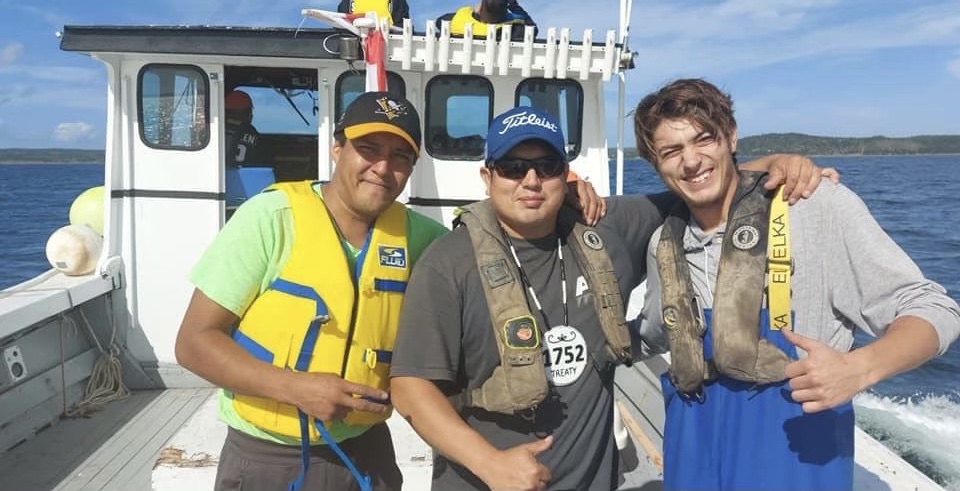
caption
Michael Basque (centre) is the community liaison for the Potlotek fishery.With the launch of the moderate livelihood fishery in Potlotek, Michael Basque and his son are optimistic for the future.
“He knows we’re fighting and we’re not going to give up,” said Basque.
Basque started commercial fishing 18 years ago and has been moderate livelihood fishing for two years. Since the Potlotek’s official launch of the Netukulimk fishery last October, Basque has become a community liaison.
“It involves taking care of the moderate livelihood, like finding buyers and giving out tags,” said Basque. “It basically takes care of all the moderate livelihood fishermen and all the communicating with the commercial or [Fisheries and Oceans Canada] or different stuff like that.”
For Basque, fishing is a means to provide for his family.
“It’ll help pay my bills and we could live in comfort instead of worrying,” said Basque. “My sons will learn. My kids will learn.”
It’s been 260 years since the Mi’kmaq signed the treaty to protect their right to fish, hunt and any other resources they use. The Supreme Court of Canada upheld these treaty rights in the Marshall decision 21 years ago, yet there’s still conflict on the water.
“They’re saying there’s not enough room for us,” said Basque. “One area that we’re fishing in has 16,500 traps; we have 700 traps.”
Commercial fishers have voiced their concerns about conservation of resources, even though DFO’s data on lobster populations shows otherwise. Potlotek has created a Netukulimk plan, a way to achieve well-being in the community without putting resources in jeopardy.
“It’s really important to know that we have data on landings, and we base our traps on lobster stocks,” said Basque. “They were healthy and there’s no problem with conservation and they’re always coming back.”
Basque sees the moderate livelihood fishery as a new start for his community.
“It was great because it was the taste of things to come,” he said.
“I don’t want my kids to be poor; I want them to have opportunities to tap into our resources.”
By Sarah Drysdale
Gail Tupper and Sarah Veinot
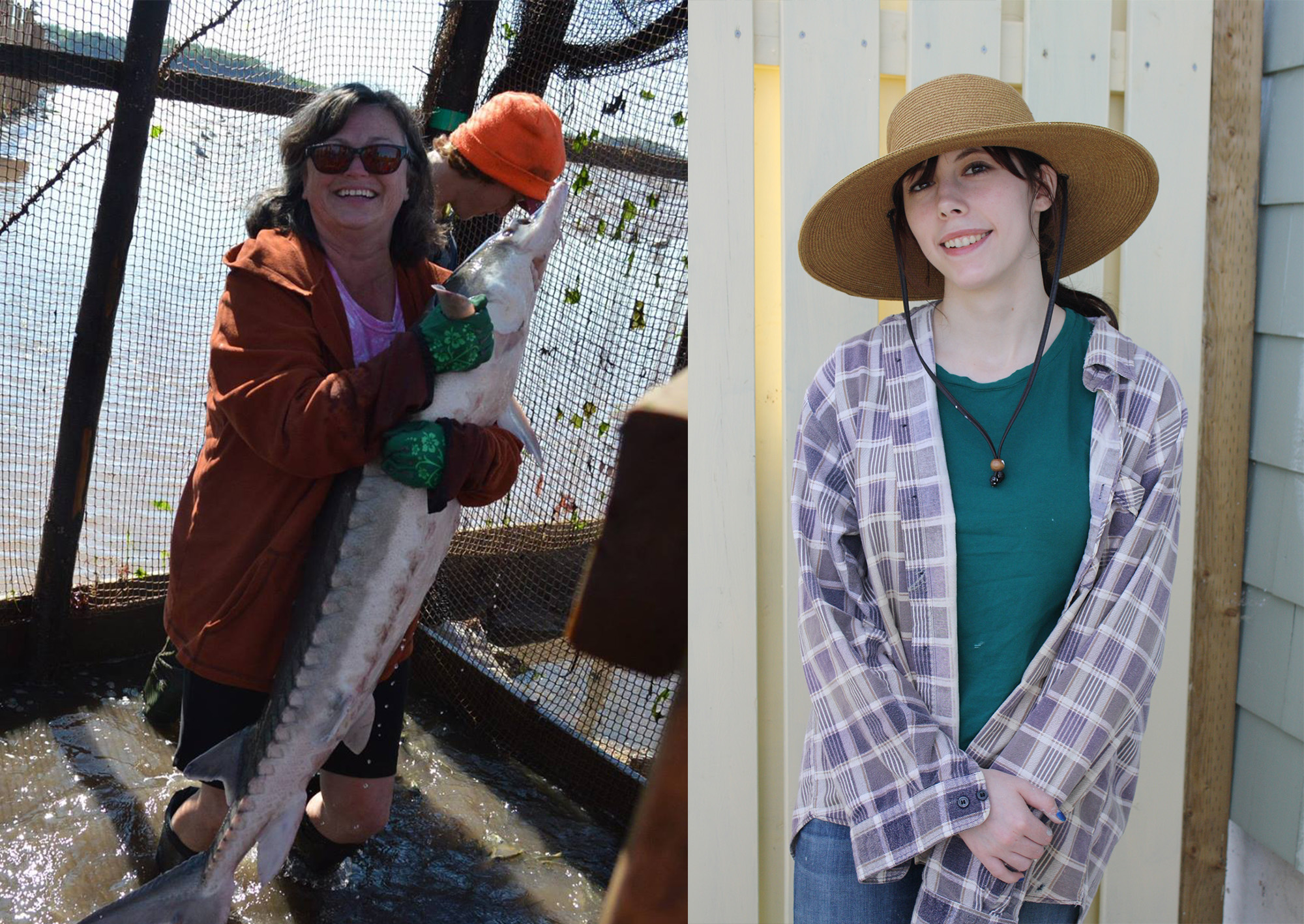
caption
Gail Tupper (left) and Sarah Veinot are working on the Gloocap First Nation’s treaty fishery plan.Glooscap First Nation members kept telling Gail Tupper they wanted to make a living from fishing, so she wanted to do something about it.
“All Mi’kmaq, mostly all Mi’kmaq, know what their fishing rights are,” said Tupper. “And they just want to fish and make a living.”
Tupper, Glooscap’s natural resources and environment officer and Aboriginal fishery guardian, has worked in her community since 2013. She’s spent the last year and a half developing Glooscap’s moderate livelihood fishery, which will allow members to fish and sell their catch outside of the Fisheries and Oceans Canada (DFO) season by asserting their treaty right.
Tupper spearheaded the band’s food, social and ceremonial fishery plan, which she manages. She used that plan to develop one for moderate livelihood. After a community engagement session, a working group formed and the plan’s execution began.
But Tupper’s not alone.
Working alongside her is Sarah Veinot, Glooscap’s Netukulimk liaison worker. Veinot graduated from Acadia University with a degree in biology and from Dalhousie University with a degree in microbiology. She’s worked with Tupper for about a month, researching conservation measures.
“As a biologist, the whole conservation thing kind of spoke to me,” Veinot said. “I want to make sure that the resources [are] being protected for future generations so that other Mi’kmaw peoples can continue to enjoy it well into the future.”
The fishery will start with lobster but grow to include other species.
Tupper says a barrier for Mi’kmaw fishers is capacity.
“People want to fish, but they don’t have the gear to do it,” said Tupper. “It’s very expensive. And they know that if they put their gear out, it either is going to be confiscated by DFO or it’s going to be cut by the non-Aboriginal fishers.”
After seeing the racism surrounding the launch of Sipekne’katik First Nation’s moderate livelihood fishery in the fall, Tupper is concerned about the safety of Glooscap fishers.
“I want to make sure that we have a plan that is going to take [safety] into consideration. But I don’t think the safety is going to be obtained until we can get the government on board as to what we’re trying to accomplish,” she said.
Do Tupper and Veinot like fishing? Not particularly.
“When I was little, my dad, he’d always take us out to various brooks and lakes and stuff, and we’d go fishing there, but I was always a little squeamish,” said Veinot. “You know, it’s like the hooks would sometimes hurt the fish, and I didn’t like that very much when I was younger, but other than that, I don’t do a lot of fishing now.
“But I do enjoy eating lots and lots of fish and seafood,” she added.
Tupper has fished trout and striped bass recreationally, but she says most of her experience comes from her job when she takes people fishing.
“So while they’re learning, I’m learning as well,” she said.
As of June, there’s no set date for the opening of Glooscap’s Netukulimk fishery. The draft plan is near completion, but Tupper says community engagement is crucial to see what fishers want.
Tupper expects approximately a dozen people will be involved in the treaty fishery initially, but that could drop to as low as four. She hopes to see the treaty fishery ready for next spring.
By Alexis Moffett
Clifford Paul
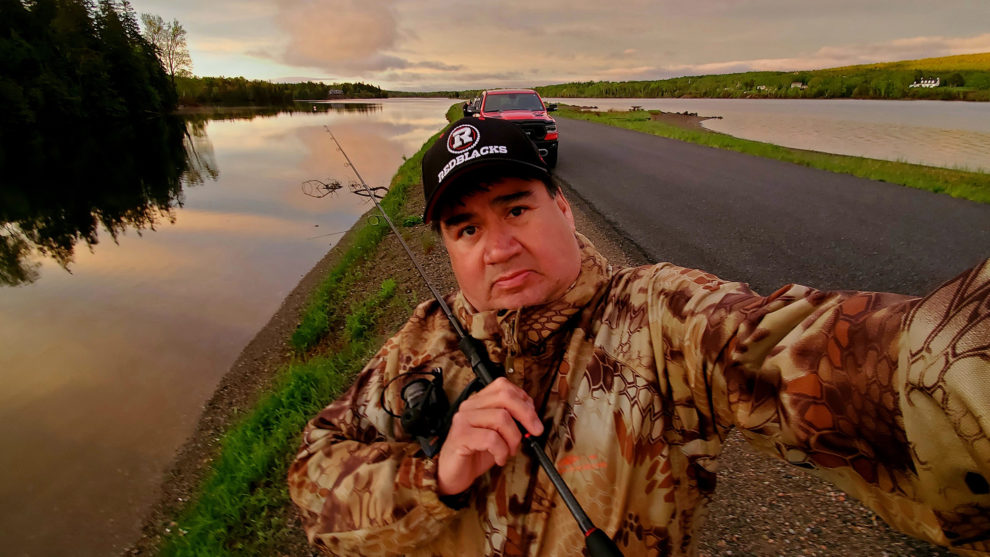
caption
Paul applies Netuklimk to his work as the moose management co-ordinator at the Unama’ki Institute of Natural Resources.Clifford Paul remembers the days in his youth, his eyes heavy, sleep coaxing him after a day spent harvesting moose in the Cape Breton Highlands. There’s the smell of sweetgrass and smoke, a fire crackling and Elders sharing stories and songs.
Paul, from the Membertou First Nation, describes this scene as one way Elders pass on the teachings of Netukulimk and natural resource management.
“Netukulimk is the use of the natural bounty, provided by the Creator, for the benefit and well-being for me as a person, my family, my community, my nation — and that I do so in such a way that I do not harm the integrity, biodiversity, and productivity of the environment,” said Paul.
Paul works as the moose management co-ordinator at the Unama’ki Institute of Natural Resources in Eskasoni. He applies Netukulimk to his work, so it’s rooted in the conservation and sustainability of resources and the environment for the next seven generations.
When it comes to applying Netukulimk from moose management to a moderate livelihood fishery, the only difference is the change in location: the land versus the sea.
Since the fall, Mi’kmaw First Nations have been incorporating Netukulimk in their fisheries management plans. Paul describes these as small scale fisheries with conservation in mind. Although he is not directly involved in a moderate livelihood fishery, his work on moose management has guided fishers trying to implement Netukulimk.
Mi’kmaw fishers have the right to fish for a moderate livelihood. But, as Paul said, with rights come responsibilities. There’s a delicate balance between exercising treaty rights and practising Netukulimk.
“What good is a treaty right if there’s nothing there?” he said.
Netukulimk inspires Paul to take only what he needs, a practice he’s passing down to his grandchildren. He teaches his grandson science combined with Netukulimk, catching and releasing fish, along with catching fish to feed their family.
“If I don’t live it, preach it, teach it, set the example, be it, share it, taste it … I’m not playing my role as a teacher, I guess, of this concept,” said Paul.
Paul is proud of his grandson’s ability to release fish, placing sustainability above greed. Even coming up empty handed from a moose hunt in the Highlands is instructive.
“Sometimes you harvest knowledge, and knowledge is ever-conducive to your survival.”
by Natasha Kelly
Brandon Maloney
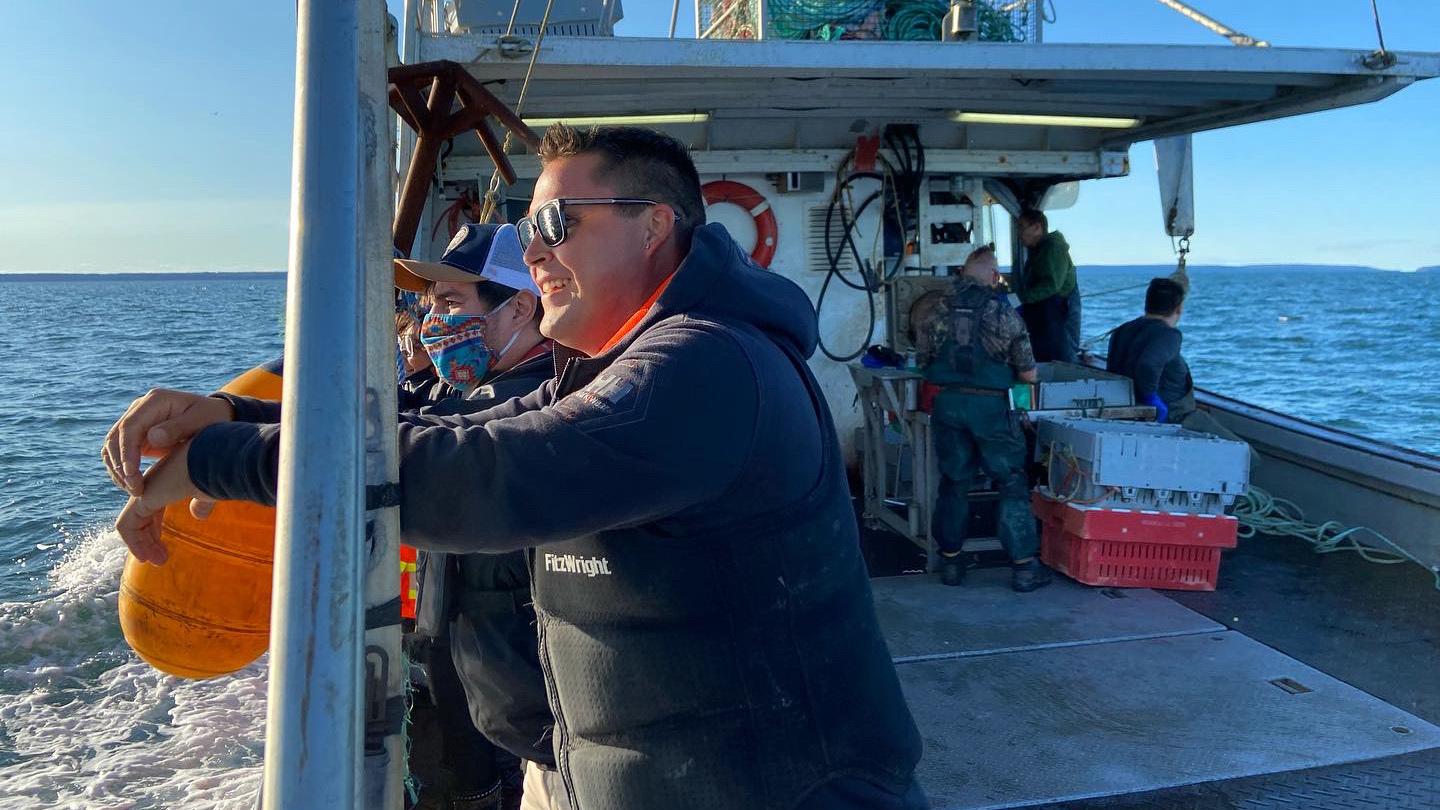
caption
Brandon Maloney out on the water in the fall of 2020.When the Sipekne’katik First Nation launched its treaty fishery in September 2020, it was a community-designed venture. Brandon Maloney was band fisheries director at the time.
“What’s in our livelihood plan is based on what the community wanted,” said Maloney. “When we went with that route it seemed to make it (the treaty fishery) really strong.”
The treaty fishery has always been part of Maloney’s life.
“Since I was a little kid, we’ve been fishing the same way and it was just met with a lot of resistance from the government and DFO (Fisheries and Oceans Canada). So, a lot of people were hiding while doing this and the DFO were trying to criminalize it. They would call them poachers or whatever and we (First Nations) did not think there was any ‘native poaching;’ it’s not even in our vocabulary.”
Despite the challenges Mi’kmaq faced fishing for a moderate livelihood, Maloney saw a way forward. He spent three years meeting with band members and fisheries professionals.
“I did a house-to-house visit with every house in the community, with surveys to see what a livelihood was to them. We put together a really good plan. We had a lot of professionals from different parts of the fisheries and communal involvement. It’s more the people’s plan. It came from the ground up,” he said.
Sipekne’katik’s treaty fishery was designed by the community, for the community.
But in September, the treaty fishery launch was met with overt, racialized violence and opposition. Non-Indigenous commercial fishers protested and cut lobster traps, and some protesters set fire to a van and building where Mi’kmaq stored lobster.
“They just bluntly came out and showed just how racist they were and how against the Native fishery it was,” Maloney said. “We wanted to come to the light with fishing, but we brought to light the real things we deal with.”
He said media coverage of the protests and the treaty fishery served to educate the public and even helped grow support for the Mi’kmaq.
“It shows the real situation” — Brandon Maloney
In November 2020, Maloney was elected as a band councillor for Sipekne’katik First Nation. He manages the treaty fisheries portfolio with the new band fisheries director and said his goal is to create a sustainable livelihood within the community.
Maloney said he sees the positive in every situation.
“We’re still in the early processes of it all. The door’s open. I think we’re more and more understanding each other every day.”
By Carolyn Conrad
Alex McDonald
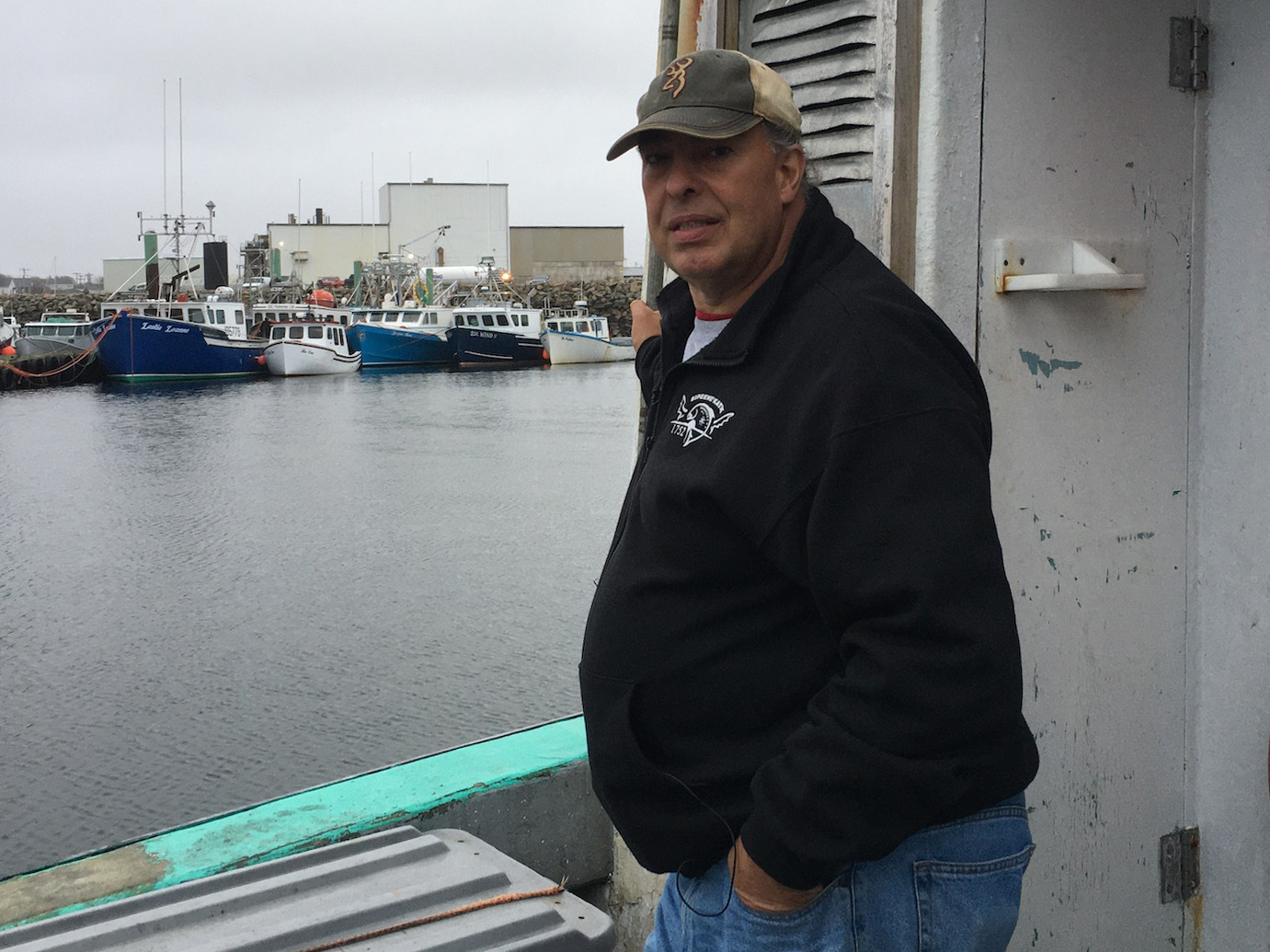
caption
Alex McDonald has been fishing to assert his treaty rights for decades.Alex McDonald, a Mi’kmaw fisherman from Sipekne’katik, says officers with Fisheries and Oceans Canada (DFO) have harassed him on the water for as long as he can remember.
“I’ve had a long history of DFO charges since I was a kid fishing in the river,” said McDonald.
He’s continued to fish for over three decades. “I’m stubborn and I’m invested in it all these years and there’s no sense in quitting now.”
In his 20s, McDonald started commercially catching and selling gaspereau, a small fish used as bait. Then he began fishing for lobster. He used tags from the Mi’kmaq Fish and Wildlife Commission, which, he said, the DFO officers accepted at the time. The commission was formed in 1995 to regulate Mi’kmaw commercial and traditional fisheries in Nova Scotia.
McDonald said that the DFO battles got worse after the Marshall decision in 1999.
Donald Marshall Jr. was acquitted of catching and selling eels without a licence outside of the DFO season. This case went to the Supreme Court of Canada, which upheld the rights of the Mi’kmaq to earn a moderate livelihood.
However, two months later, the court issued a rare clarification that stated that the DFO can regulate Mi’kmaw fishing when conservation is a concern and after consulting the First Nation involved. This is known as Marshall II.
McDonald said it created more problems than before the decision.
“We did that [catching lobsters] and then Marshall II came along, and it turned into a big flop because it gave the opinion that DFO had the right to regulate,” he said.
After the decision, McDonald fished a season when there was a 250-trap limit set by the DFO. He said within two weeks, 242 of his traps were either stolen or cut.
In the summer of 2000, McDonald was on the water in St. Mary’s Bay when conflict erupted between the Mi’kmaq and fisheries officers.
“And DFO jumps aboard my boat where I’m hauling gear. It was a dangerous thing, like we were druggies or something,” he said.
Fast forward to the fall of 2020, and Sipekne’katik launched its moderate livelihood fishery in those same waters.
For weeks, non-Indigenous commercial fishermen held protests in western Nova Scotia. Some protesters set fire to a van and a lobster facility, and vandalized Mi’kmaw fishing gear.
“It’s been a headache all my life,” McDonald said. “This is an everyday occurrence. Our people are so resilient, they shrug it off.”
McDonald hopes in the future the DFO will accept the Mi’kmaw management plans and stop listening to the public outcry.
“I believe that our management plans are very conservative,” he said. “We don’t take a lot. We take enough, sell some and eat quite a bit of it.”
Despite decades of battles with the DFO, McDonald has no plans to stop fishing anytime soon.
“I do it because I enjoy it. I enjoy being off the reserve and I enjoy being in nature. I enjoy being in the ocean.”
By Amelia St. John
Editor's Note
These stories were produced by students in the Reporting in Mi'kma'ki course (May-June 2021). The people quoted in our stories were generous with their time, and we are thankful for that. Wela’lioq! We recognize we are all treaty people on the ancestral and unceded territory of the Mi’kmaq. We also thank APTN News for the use of select videos and photos. A version of this story will appear on the APTN News website.
About the author

Reporting in Mi'kma'ki class
